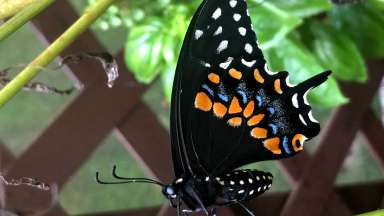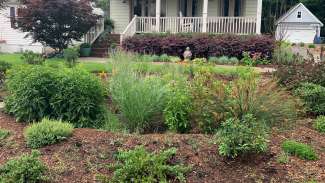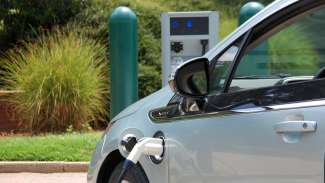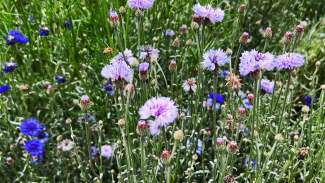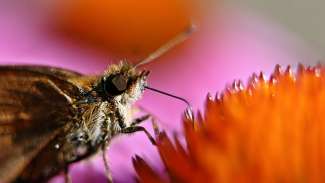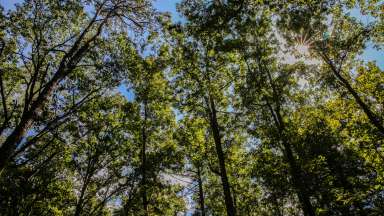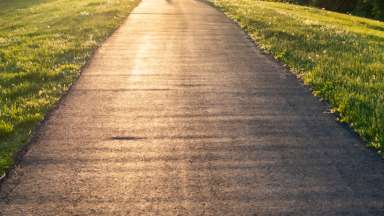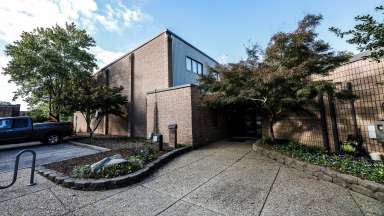Jump To:
Sustainable Stormwater
Citizens can help track green stormwater infrastructure changes simply by sharing a photo with us! Special signs with mounted phone stands are being installed at Glen Eden Pilot Park, Walnut Creek Wetland Park, and Wooten Meadow Park. When visiting these sites, place your phone on the stand and snap a quick photo to upload.
Do you want to help protect the environment and get paid to do it?
You can - right from your home or business! Raleigh Rainwater Rewards offers up to 90 percent reimbursement for rain gardens, cisterns, green roofs, permeable pavement, and other projects based on criteria.
Storm Drain Marking: Glue “No Dumping” stickers on your neighborhood storm drains to remind others to never put harmful chemicals or other items into the drain. Raleigh Stormwater provides all supplies!
City of Raleigh's Community Climate Action Plan
Raleigh’s Community Climate Action Plan (CCAP) aims to reduce City-wide greenhouse gas (GHG) emissions by 80% by 2050.
The City's first community-wide plan for action was released in 2021 and was developed with the help of experts, leaders, community organizations, and City staff. The Plan looks at Raleigh’s sources of emissions and offers strategies to reduce them.
The CCAP lays out a plan for Raleigh to:
- Reduce GHG emissions from energy use, transportation and waste
- Build community resilience to the impacts of climate change
- Support climate equity in Raleigh
For more information visit, Raleigh’s CCAP.
Raleigh Parks Volunteer Program
Make a difference in your community by volunteering this month and all year with Raleigh Parks! Assist with landscaping, coaching, special events, the Adopt-A-Trail program, and other opportunities. There are many ways for individuals, groups, students, and businesses to contribute to our quality programs and facilities.
Wildlife and Pollinator Program
In March 2021, Mayor Mary-Ann Baldwin signed the National Wildlife Federation's Mayors' Monarch Pledge joining hundreds of other U.S. communities committed to creating habitat for the monarch butterfly and pollinators, and educating residents about how they can make a difference at home and in their community.
To learn more about pollinators, the benefits of pollinators, what the city is doing to help pollinators, and how you can join our effort, visit our Wildlife and Pollinator Program page.
